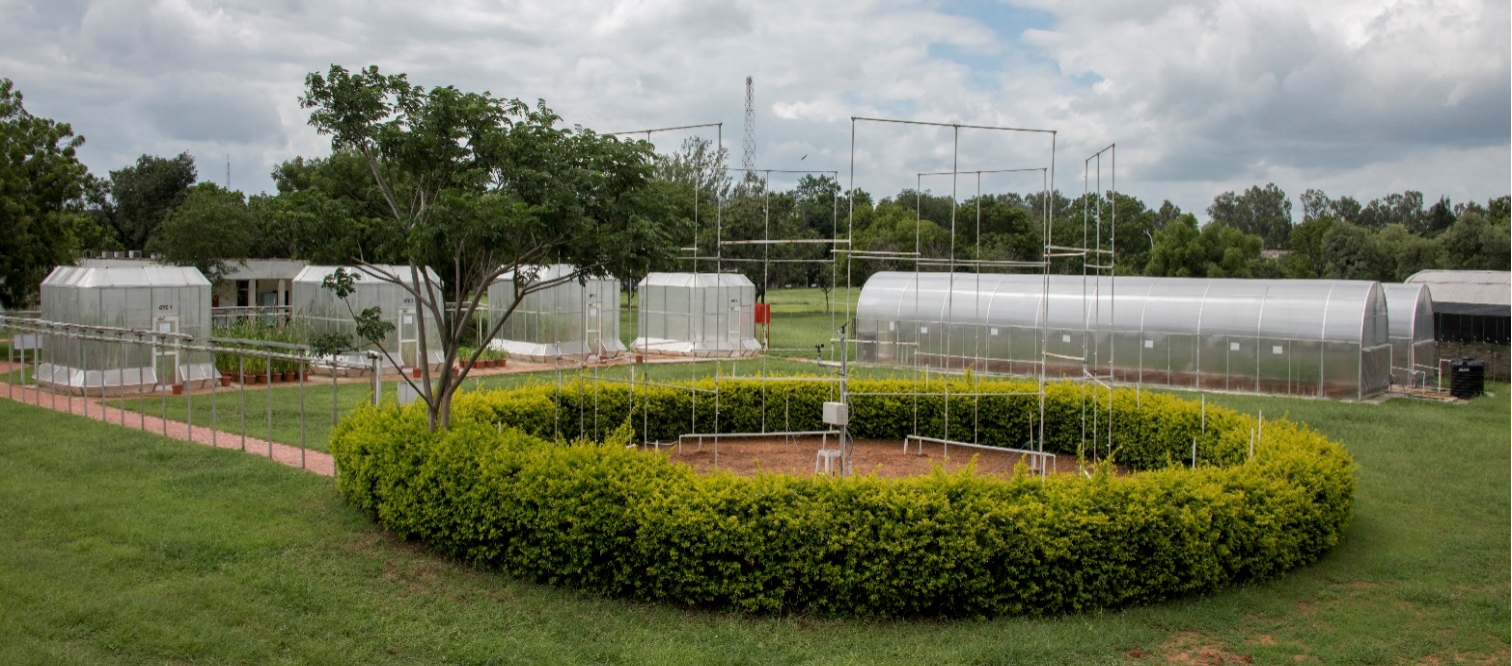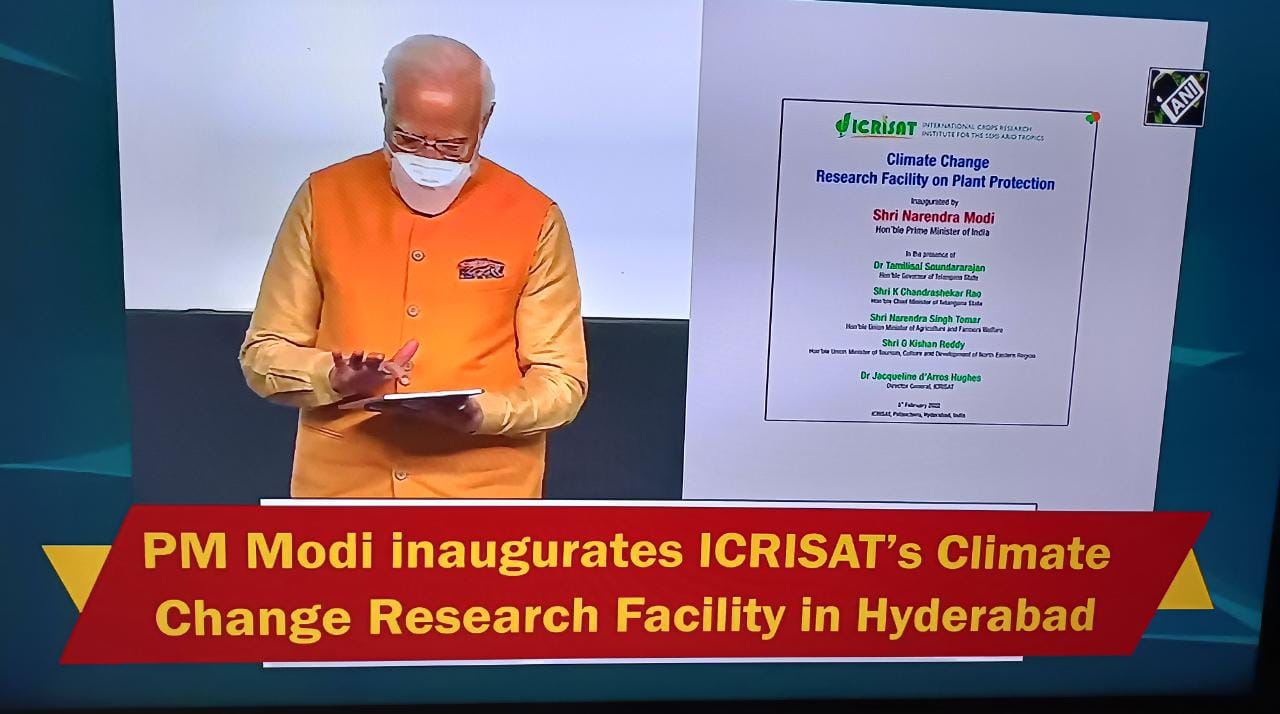India now has a new international level Climate Change Research Facility -- a platform to focus on developing modern crop production and protection tools that can make agriculture more sustainable and climate-resilient.
The state of the art climate change research facility at ICRISAT, established with the support of the Climate Change Program of the Department of Science and Technology (DST), Govt of India, and inaugurated by Prime Minister Narendra Modi on February 5, 2022, will strengthen the global efforts to alleviate climate change impacts on agriculture and food security.
While inaugurating the Climate Change facility on plant protection, the Prime Minister said that people in the last rung of development with little resources are worst affected by climate change and reiterated India’s request to the world to pay special attention to climate change. He pointed out that India’s focus is on the fusion of ‘back to basic’ & ‘march to future’ to protect its farmers, specially its small farmers, who constitute more than 80 percent of the farming community, from climate challenges.
ICRISAT, which hosts this facility, is known for its work on agriculture and climate change spanning areas like water & soil management improvement in crop variety in several parts of the world, including India.
The facility with explicitly open-top chambers (OTC), controlled environment temperature gradient tunnels (CTGT), and free-air CO2 enrichment (FACE) are equipped to simulate the future climatic conditions like elevated temperature and elevated CO2, offering a glimpse into a future world with changing climate. This facility has been set up as part of a Centre of Excellence on Climate Change and Plant Protection under the National Mission on Strategic Knowledge for Climate Change implemented by DST under Climate Change Program headed by Dr. Nisha Mendiratta, Scientist-G. Dr. Akhilesh Gupta, Senior Adviser, DST, attended the launch ceremony at ICRISAT.
Dr. Mamta Sharma, who heads this facility, is a Deputy Regional Director-Asia and Cluster Leader for Precision Phenotyping for Biotic, Abiotic Stresses and Nutrition. She is coordinating National Network Initiative on Climate Change Research for Plant Protection at ICRISAT and is instrumental in development of next-generation tools and technologies for rapid disease detection, high throughput phenotyping, management under the arena of climate variability.
Outcomes from this facility will be available for various stakeholders’ scientists, and policymakers to develop country-specific adaptation strategies to eventually support the greater resilience of smallholder farmers.
































